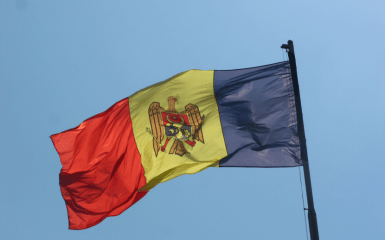A 54-year-old man was detained in the capital of Moldova, Chisinau, who threw two "Molotov cocktails" on the territory of the Russian embassy, where the polling station opened today.
A man who threw "Molotov cocktails" at the Russian embassy was detained in Chisinau
According to the police, at the time of the arrest, the man managed to throw two containers with an incendiary mixture over the fence of the Russian embassy. He was detained and identified.
The detainee turned out to be a citizen of Moldova. He says that he also has Russian citizenship. Law enforcement officers are currently checking his words.
The man motivated his actions by the fact that he was dissatisfied with the actions of the Russian authorities.
The embassy of the Russian Federation condemned the man's act and said that they are "waiting for a fair and severe punishment."
With the consent of the Moldovan authorities, the only official polling station in the country was opened in the Russian consulate, but Russia also opened polling stations in the unrecognized Transnistrian region, despite the protests of the Moldovan authorities.
"Elections" of the President of the Russian Federation: what is known
From March 15 to 17, presidential "elections" are held on the territory of Russia.
Russian dictator Vladimir Putin is running for a fifth term, a victory in the elections will allow him to remain in power until 2030.
In addition to him, MP from the CPRF Mykola Kharitonov, head of the LDPR Leonid Slutsky and vice-speaker of the Duma from "New People" Vladyslav Davankov are taking part in the elections. None of them condemned the invasion of Ukraine and did not criticize Putin.
Mock elections are also held in the occupied territories of Ukraine. According to the SBU, the Russian occupiers strengthened the administrative-police and counter-intelligence regime in order to control the population and influence the results of the vote, under the guise of security measures.
Early "elections" were held by the occupiers in most settlements of the Kherson and Zaporizhzhia regions in the format of door-to-door visits and the installation of mobile polling stations on the streets.



